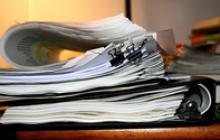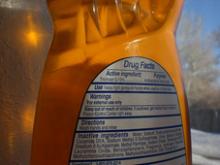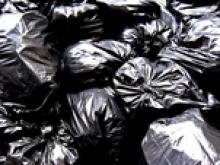Seattle has instituted some
tough restrictions on yellow pages, those commercial phone books filled with ads for local businesses. White pages will continue to be printed and distributed free to all Seattle residents, because it is a state law. (Raise your hand if you didn't know that! I did not know that.) But in a significant move towards becoming a Zero-Waste City, Seattle is requiring that the yellow pages be delivered on an opt-in basis from now on.
This is an important move, and it was made with a surprising degree of finesse. Despite significant push-back from the producers of yellow pages, like Dex and The Yellow Pages (it's a trademarked name). From the publisher's perspective, commercial phone books are a big money-maker.
As a yellow pages producer, you charge every company for the ability to appear in your pages. And your rates are linked to circulation rates. The more homes you deliver your phone books to, the more you can charge your clients.



